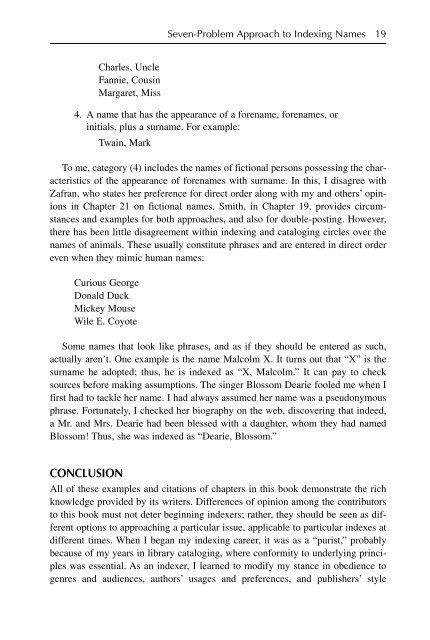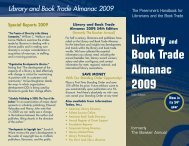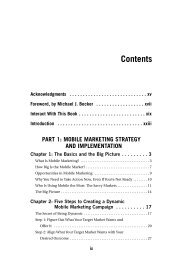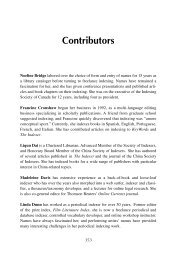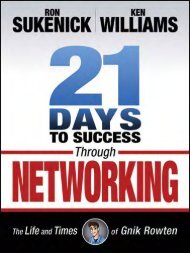Sample Chapter - Books
Sample Chapter - Books
Sample Chapter - Books
- No tags were found...
You also want an ePaper? Increase the reach of your titles
YUMPU automatically turns print PDFs into web optimized ePapers that Google loves.
Seven-Problem Approach to Indexing Names 19Charles, UncleFannie, CousinMargaret, Miss4. A name that has the appearance of a forename, forenames, orinitials, plus a surname. For example:Twain, MarkTo me, category (4) includes the names of fictional persons possessing the characteristicsof the appearance of forenames with surname. In this, I disagree withZafran, who states her preference for direct order along with my and others’ opinionsin <strong>Chapter</strong> 21 on fictional names. Smith, in <strong>Chapter</strong> 19, provides circumstancesand examples for both approaches, and also for double-posting. However,there has been little disagreement within indexing and cataloging circles over thenames of animals. These usually constitute phrases and are entered in direct ordereven when they mimic human names:Curious GeorgeDonald DuckMickey MouseWile E. CoyoteSome names that look like phrases, and as if they should be entered as such,actually aren’t. One example is the name Malcolm X. It turns out that “X” is thesurname he adopted; thus, he is indexed as “X, Malcolm.” It can pay to checksources before making assumptions. The singer Blossom Dearie fooled me when Ifirst had to tackle her name. I had always assumed her name was a pseudonymousphrase. Fortunately, I checked her biography on the web, discovering that indeed,a Mr. and Mrs. Dearie had been blessed with a daughter, whom they had namedBlossom! Thus, she was indexed as “Dearie, Blossom.”CONCLUSIONAll of these examples and citations of chapters in this book demonstrate the richknowledge provided by its writers. Differences of opinion among the contributorsto this book must not deter beginning indexers; rather, they should be seen as differentoptions to approaching a particular issue, applicable to particular indexes atdifferent times. When I began my indexing career, it was as a “purist,” probablybecause of my years in library cataloging, where conformity to underlying principleswas essential. As an indexer, I learned to modify my stance in obedience togenres and audiences, authors’ usages and preferences, and publishers’ style


